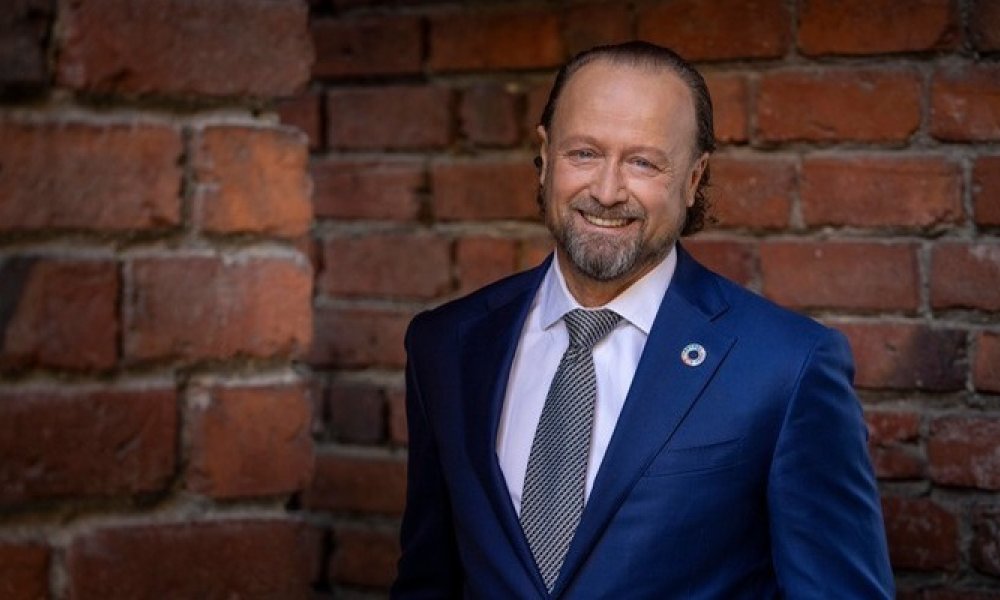Following more than a decade of powerful growth and mainstream acceptance, sustainable investing is currently facing perhaps its greatest test. Environmental, Social and Governance (ESG) has always faced resistance – usually on the grounds that politicians are best placed to tackle its issues while investors should concentrate on profit maximisation – but this has recently reached a crescendo.
The opposition is greatest in the US, where investors have historically focused on ESG’s upside potential but now face mounting political, legal and financial threats to curb their sustainability activities. Companies have also come under the spotlight, with many scaling back or cancelling diversity, equity and inclusion (DEI) commitments and targets.
These developments have themselves met resistance, placing sustainable investing at a crossroads and raising important questions about its future. For Storebrand, which created an ESG team in 1995, the debate underlines the nuances of the issues involved but also reaffirms our approach and commitments to investing sustainably.
Climate commitment climbdown
One of the clearest signs of the ESG backlash is the exodus of major asset managers from climate-focused investment coalitions. The retreat, which began in late 2022, culminated in January when the Net Zero Asset Managers (NZAM) initiative suspended its activities.Climate Action 100+, an investor alliance pushing the world’s biggest polluters to reduce emissions, announced the departure of several large members from its initiative a month later.
We have some sympathy with the US investors who withdrew from these coalitions given the rising pressure they face. The use of ESG metrics has become a major battleground, particularly in Republican-led states where policymakers argue that sustainable investing prioritises political and social goals over financial returns, potentially violating fiduciary duties. Several have introduced legislation restricting public pension funds from considering ESG factors in investment decisions and some have withdrawn mandates on sustainability grounds. In addition, US investors have faced growing legal challenges. These claim that industry-wide climate commitments violate antitrust laws, and several states have filed lawsuits against asset managers for disadvantaging fossil fuel companies in pursuit of environmental goals.
Others are less understanding to their predicament. In February, a group managing a combined US$1.5 trillion called on asset managers to strengthen their climate stewardship and engagement activities or risk deselection – a threat that has recently seen several billion dollars of assets switched from those who have withdrawn from climate coalitions into others seen to offer greater alignment with the asset owners’ “stewardship approach” and “responsible investment standards”.
This illustrates the complexities of the challenges we all face.
DEI and performance headwinds
The backlash has spread beyond climate-related issues with US companies also scaling back DEI programmes in the face of political and legal pressure. Donald Trump issued a series of executive orders cutting federal initiatives that promote equal opportunities, for example, soon after his inauguration.
Large corporations, including big tech and Wall Street banks, have reversed commitments or targets, while others face lawsuits from government agencies and shareholders alleging that their policies are discriminatory or have led to financial underperformance. As with the climate coalitions, however, some businesses have doubled down on their DEI initiatives.
The headwinds have weighed on investor sentiment, which has been a contributing factor in the recent underperformance of sustainable investment strategies, both relative to previous periods and the broader market. Outflows from US ESG funds reached $19.6 billion last year, up from $13.3 billion in 2023, according to Morningstar[1]. Meanwhile, the S&P Global Clean Energy Transition Index, a barometer for global clean energy-related companies, is down 65% from its January 2021 peak, although returns have been positive year-to-date[2].
Our house view unchanged
As many investors and corporates retreat from ESG commitments in the face of mounting opposition – not only in the US – sustainability faces an uncertain future. Regulatory scrutiny has also intensified significantly in recent years and although this is largely for the right reasons, it is causing some investors to take a more cautious approach to mitigate compliance and reputational risks.
The question is whether this retreat represents a temporary shift driven by cyclical factors or a more permanent recalibration of ESG’s ability to meet the real-world issues we face? If we accept the scientific consensus – and in light of recent climate catastrophes – it is important to retain momentum.
Storebrand was an early signatory of both NZAM and Climate Action 100+initiatives, as well as being part of many other international investor coalitions. We make our own decisions on climate issues – and all others related to ESG factors – but it is vital that these industry alliances have a committed membership in order to be successful and benefit society.
Or position is unchanged:
- We maintain our investment principles and believe that tackling the underlying risks associated with ESG, such as climate change, biodiversity loss, social inequalities and the safeguarding of institutions and legal rights, is more important than ever.
- We continue to uphold our fiduciary duty and integrate ESG in our investment process in order to ensure effective risk management and returns for our clients.
- We will continue to engage with companies to help them improve, and challenge governments to ensure that the playing field for investors and corporates is aligned with sustainable development goals and pledges.
Climate and nature risk remains one of the greatest threats facing humanity that stretches far beyond political and market cycles – it requires long-term holistic action. We recently strengthened our own climate policy and call on policymakers, corporates and the investment community to stand firm on their own climate and biodiversity commitments.
The current lack of political leadership is unfortunate, but we recognise that these issues are complex and contentious – ‘nothing worth having comes easy’ to paraphrase Roosevelt’s famous quote. We are among the long-term asset managers that see sustainability as an important factor in delivering their fiduciary duty and remain steadfast on both our approach and commitment.
[1] US Sustainable Fund Landscape 2024 in review, Morningstar.
[2] As at 21/03/2025.







